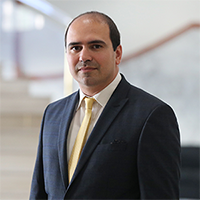
By Calvin Cassar – Head, People & Culture, MFSA
During the early months of 2020, the world was watching with fascination and concern as the outbreak and spread of the SARS-CoV-2 worked its way across countries and continents. In the past decade, we had seen the sparks and the withering of other virulent conditions, so there was a sense of denial in the collective unconscious with thoughts progressing from ‘this will eventually fade off’, to ‘it won’t make it to Europe’, to eventually ‘it won’t make it to Malta’. Rather than the virus, the rationalisations were the ones to fade off, and we eventually came to the realisation that we would be living with COVID-19 for a prolonged period.

From an organisational perspective, within all the concerns, challenges, and disruptions, there were also positive experiences that emerged from the pandemic and lessons learnt which to an extent should go beyond the period of contingency. These include:
- Planning is key - having contingency plans in place is essential for an organisation to be able to address emerging challenges. The pandemic was one of them, however, there may be others around the corner.
- Remote working works - at senior management levels, there always used to be a debate on whether work could be carried out remotely. Can managers manage remotely? Can the workforce be trusted to achieve and perform? What happens if we don’t meet physically? Will we miss out on information without face-to-face interactions? The questions can still be debated, however it is clear that when out of need individuals were asked to work from home, they stepped up, delivered and achieved.
- Technology is a key enabler in organisational performance - this holds true even for roles focused upon social interaction. Human resources is indeed people-focused. However, since March last year activities such as recruitment, training, performance management, and other key initiatives were carried out seamlessly via digital media such as Webex, Teams or Zoom , something which previously was rather unfathomable. The MFSA would not have been able to carry out its supervisory work had it not invested in its technological infrastructure in recent years. Other service-focused organisations had only two options – to shift … or to fade.
- Working remotely can have a positive net effect on the environment - avoiding the daily commute, and the corresponding frustrations in traffic in the morning and in the evening has also the added by-product of creating a positive net impact on the environment. We have also seen the improvement in the quality of air, the dolphins swimming into the Valletta harbour, and enjoyed the time spent in the natural environment. This is something we should look into retaining in the long- term.
- The human element remains key - despite individuals working from different locations, and despite having less opportunity for physical interaction, the human element remains key. Individuals continue to be the ones identifying solutions, solving problems and providing service to clients and stakeholders. Identifying the means to have healthy boundaries, emotional well-being and sustained engagement is absolutely critical for organisations to continue achieving results.
Will we carry forward these gains and retain them as a way of doing things? It would be a pity if we do not.

